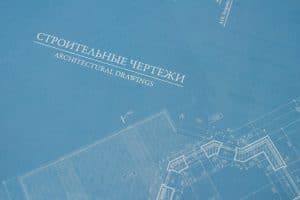Quantum Leap: Technological Innovations Transforming Global Exploration
The world of exploration is rapidly evolving, thanks to the groundbreaking innovations in technology. From space exploration to deep sea diving, these technological advancements have opened doors of possibilities and have taken our understanding of the world to a whole new level. One such innovation that has made a quantum leap in global exploration is quantum technology. The ability to harness quantum mechanics has revolutionized the way we explore and discover new frontiers. In this article, we will take a closer look at the transformative impact of quantum technology on global exploration.
The Dawn of Quantum Technology
Quantum technology, also known as quantum mechanics, is a branch of physics that studies the behavior of matter and energy at a subatomic level. This science has brought a paradigm shift in our understanding of the world around us and has paved the way for technological breakthroughs that were once unimaginable.
The foundation for quantum technology was laid in the early 20th century by physicists such as Max Planck, Albert Einstein, and Niels Bohr, who introduced the concept of quantum theory. However, it was not until the latter half of the 20th century that the practical applications of quantum mechanics began to emerge. And today, we see it transforming global exploration like never before.
Quantum Computing – Unlocking New Possibilities
One of the biggest technological innovations of our time is quantum computing. Unlike traditional computers, which use bits to store and process information in binary form (either 0 or 1), quantum computers use qubits (quantum bits) that can exist in multiple states simultaneously. This allows quantum computers to perform complex calculations and solve problems much faster than traditional computers.
The potential of quantum computing in exploration is vast. It has the ability to process large amounts of data and solve complex algorithms, making it a game-changer in fields such as geological exploration, weather prediction, and space exploration. With the help of quantum computers, explorers can now process and analyze vast amounts of data in real-time, making it easier to make discoveries and advancements in various fields of exploration.
Improving Accuracy and Precision with Quantum Sensors
In addition to quantum computing, another key application of quantum technology in global exploration is the development of quantum sensors. These sensors use the principles of quantum mechanics to measure and detect extremely small changes in the environment. This makes them highly accurate and precise, making them ideal for use in various exploration activities.
For instance, quantum sensors are now being used in mineral exploration to detect the presence of minerals deep beneath the surface. These sensors utilize quantum entanglement, a phenomenon where two particles can have a strong correlation, to detect small changes in the magnetic fields of the earth. This technology has the potential to make mineral exploration more efficient and cost-effective.
Advancements in Space Exploration with Quantum Technology
One of the most exciting areas where quantum technology is making a huge impact is in space exploration. The highly complex calculations and simulations required for space missions can now be simplified and made faster with the help of quantum computers. Additionally, quantum sensors and entanglement-based communication are being used to improve satellite navigation and communication, thus making space exploration more precise and efficient.
Furthermore, the development of quantum communication has brought us closer to achieving secure and ultra-fast communication in space. This technology is based on quantum entanglement, making it virtually impossible to hack or intercept, making it vital for future space missions and exploration activities.
Challenges and Ethical Considerations
While the potential of quantum technology in global exploration is immense, there are also some challenges and ethical considerations that must be taken into account. One major concern is the cost associated with the development and implementation of quantum technology. As of now, quantum computers and sensors are expensive and can only be afforded by large organizations and governments. This could create a barrier to access for smaller exploration companies and individuals.
Another concern is the ethical implications of using quantum technology, particularly in space exploration. Some experts argue that the increased accuracy and precision of quantum sensors and communication could lead to a potential monopoly over space resources, thus raising questions about the fair distribution of resources.
The Future of Quantum Technology in Global Exploration
The advancements in quantum technology have opened up endless possibilities for global exploration. From improving accuracy and efficiency in exploration activities to unlocking new frontiers in space, quantum technology has brought about a quantum leap in the world of exploration. As the technology continues to evolve and becomes more accessible, we can only imagine what the future holds for global exploration.
In conclusion, quantum technology has transformed the way we explore the world around us. From enhancing accuracy and precision to making complex calculations at lightning speed, this revolutionary technology has made a significant impact on global exploration. However, it is crucial to address the challenges and ethical considerations to ensure responsible and equitable use of this groundbreaking technology in the pursuit of exploring new frontiers. As we continue to unravel the mysteries of the universe, quantum technology will undoubtedly play a crucial role in shaping the future of global exploration.










